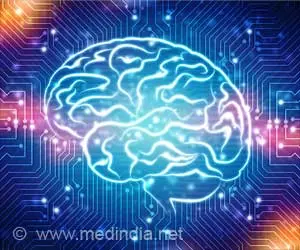
Chennai, July 5 -- Highlights:
* Artificial intelligence tool identifies nine types of dementia using one scan
* Brain imaging accuracy increased up to three times with new clinical //tool
* Dementia diagnosis now faster and more precise even without specialist input
Identifying dementia type with just one widely available scan is now possible, thanks to a new artificial intelligence tool developed by Mayo Clinic. The technology, called StateViewer , accurately classified nine different types of dementia , including Alzheimer's disease, in 88 percent of tested cases ( ref1 ).
Results were published in Neurology , the official journal of the American Academy of Neurology.
StateViewer not only delivered faster interpretations of brain scans almost twice as fast as traditional workflows, but also increased diagnostic accuracy by up to three times . It was trained on more than 3,600 scans from individuals with and without cognitive issues, helping clinicians analyze complex brain activity patterns with greater clarity.
Precision in Early Detection of Dementia Types
A significant advantage of StateViewer lies in its ability to identify dementia subtypes early and accurately, even when multiple conditions coexist . This early clarity can be critical, especially as new treatments become available that require precise matching between therapy and condition.
The tool offers a reliable solution for healthcare settings that may not have easy access to neurological specialists.
With dementia continuing to rise globally, effective diagnosis has become more urgent than ever. Over 55 million people live with dementia today, with nearly 10 million new cases annually. Alzheimer's disease alone stands as the fifth leading cause of death worldwide .
Despite numerous diagnostic tools, ranging from cognitive assessments and imaging to laboratory testing, differentiating between dementia types like Alzheimer's , Lewy body dementia, and frontotemporal dementia remains difficult, even for highly trained professionals.
Human-Focused Development and Real-World Impact
StateViewer was created under the leadership of David Jones, M.D., a neurologist at Mayo Clinic and head of its Neurology Artificial Intelligence Program. Dr. Jones emphasized that every patient represents a unique neurological story , and this tool represents a commitment to faster, more accurate diagnoses and tailored treatment options.
Partnering with him was Leland Barnard, Ph.D., the lead data scientist behind the tool's artificial intelligence. Barnard shared that the development process remained focused on the patients behind every brain scan, aiming to offer immediate and insightful diagnostic support to clinicians. This human-centered engineering highlights how machine learning can play a transformative role in medicine.
Color-Coded Brain Mapping for Greater Understanding
StateViewer analyzes fluorodeoxyglucose positron emission tomography scans , which track glucose usage in the brain to indicate areas of activity. By comparing a patient's scan to thousands of reference scans with confirmed dementia diagnoses, the tool identifies matching activity patterns that point to specific dementia types or even combinations.
Each dementia type affects different regions of the brain. Alzheimer's disrupts memory and cognitive-processing areas, Lewy body dementia influences regions involved in movement and attention, and frontotemporal dementia impacts areas tied to language and behavior.
StateViewer displays its findings through intuitive color-coded maps , offering visual explanations accessible even to clinicians without specialized neurology training.
In conclusion, StateViewer represents a major leap in clinical diagnostics, offering a fast, accurate, and widely accessible way to identify various forms of dementia. With its ability to transform a single scan into a clear diagnostic guide, it holds promise for improving patient outcomes, especially in settings where neurology expertise is limited.
Source-Medindia
Medindia Copyright
